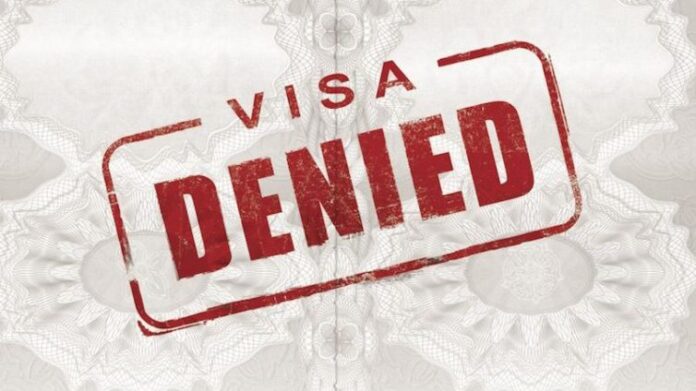Every year, tens of thousands of Ghanaians line up at the gates of foreign embassies, their dreams folded into documents, their passports heavy with hope. Some seek opportunities, others reunions.
Most simply want a short visit — a chance to breathe new air and broaden their worldview. But for many, those dreams dissolve into rejection slips and silence.
What’s left behind is not just disappointment, but debt, despair, and a bitter realisation: someone is cashing out of their failure.
The Price of Hope
Let’s talk numbers. As of 2024–2025, a UK Standard Visitor visa application from Ghana costs £115 — approximately GH₵2,200, depending on the exchange rate. The US B1/B2 tourist visa fee is $185 — about GH₵2,400.
These are non-refundable fees. Whether your visa is approved or denied, the embassy keeps the money.
Estimates from immigration analysts and local travel consultants suggest that over 100,000 Ghanaians apply for US and UK visas combined each year, with denial rates hovering around 60–70%. That’s at least 60,000 people denied annually.
Do the math:
-
UK Embassy: £115 × 30,000 denials = £3.45 million
-
US Embassy: $185 × 30,000 denials = $5.55 million
Combined, that’s over GH₵138 million (~$11 million+) collected annually from people who received nothing in return — no visa, no refund, not even an explanation.
Stories That Hurt
Ama, 29, Nurse from Kumasi
Ama saved for two years. She wanted to attend a three-week nursing conference in Manchester. Her employer endorsed the trip. Her itinerary was solid. She paid for the visa, booked her flights, bought new clothes — and then came the email: “Your application has been refused.”
No reason. No refund. Just a dead-end PDF.
“I felt like I was scammed,” she whispers. “I used part of my rent money to pay for that visa.”
She now walks two hours to work because she can’t afford transport.
Kwesi, 41, Father of Three
After selling his only taxi, Kwesi applied for a US tourist visa to attend his cousin’s wedding in New York. His brother in the States sent an invitation letter, affidavit of support — everything. But at the interview, the consular officer asked just two questions before saying, “I’m sorry, your visa is denied.”
His voice cracks as he recounts it: “They didn’t even look at my documents.”
He left the embassy with nothing but shame. Today, he’s unemployed and owes friends over GH₵3,000 in loans taken to fund the trip.
A System That Profits from Pain
Let’s be clear: embassies have the sovereign right to determine who enters their borders. Security, immigration control, and fraud prevention are legitimate concerns.
But what’s hard to justify is a system that charges hundreds of cedis in a country where the average monthly salary is around GH₵1,200, and keeps the money even when no service is rendered.
There’s no refund policy. No appeal process.
No transparency. No dignity.
If you were denied a product at the supermarket, you’d get your money back. But not here.
Here, failure pays — and not for you.
This system appears less like due diligence and more like a billion-dollar machine that monetizes rejection.
It’s not just about money.
It’s about fairness. About the right to be treated as human beings, not faceless statistics in a rejection database.
A Call for Justice, Not Charity
This isn’t a rant. It’s a plea.
To the Government of Ghana:
You have the diplomatic power to negotiate better terms for your people. Visa application fees should be partially refundable, or at the very least, tied to transparent processing outcomes.
To the Ministry of Foreign Affairs:
Demand that embassies publish their refusal statistics. Advocate for fair treatment, clear feedback, and dignity for every Ghanaian applicant.
To citizens and civil society:
It’s time we push back. Petition. Organize. Demand accountability.
Our silence is subsidising a system built on suffering.
Whose Dream Is It Anyway?
When hope becomes a transaction,
and failure becomes profit,
we must ask:
Whose dream is it anyway?
For too many Ghanaians, the cost of ambition is unbearable.
It shouldn’t be this way.
Let this article be more than words.
Let it be the beginning of a movement — not for open borders, but for open justice.
Because nobody should have to pay to be denied.
Let me know if you’d like this formatted as a publishable op-ed or blog layout, or a call-to-action graphic to support it.
The writer, Shadrach Assan, is the lead producer for Adom FM’s morning show, Dwaso Nsem.
Source: Shadrach Assan
READ ALSO:


